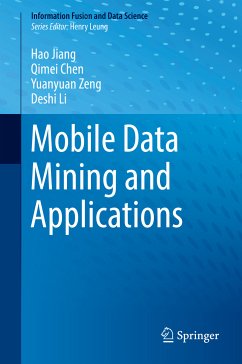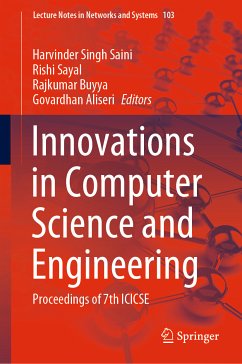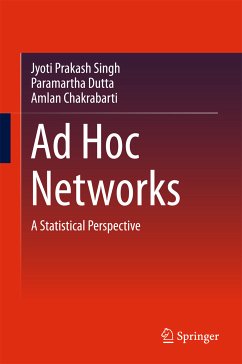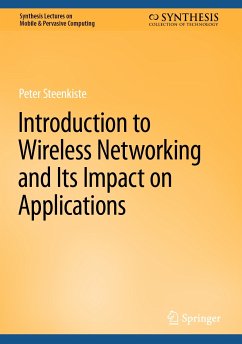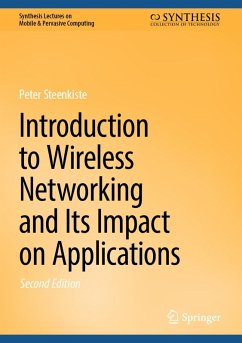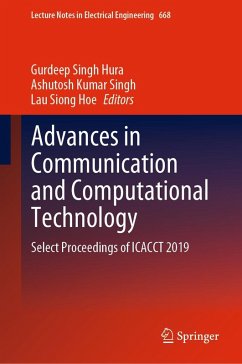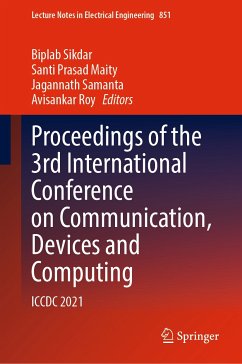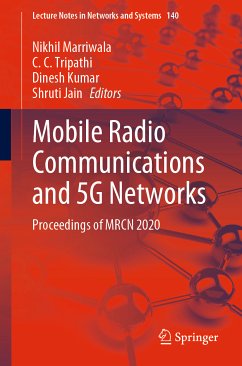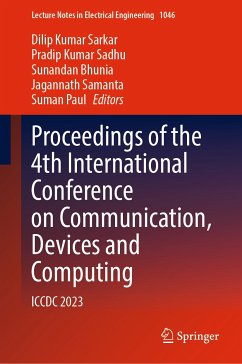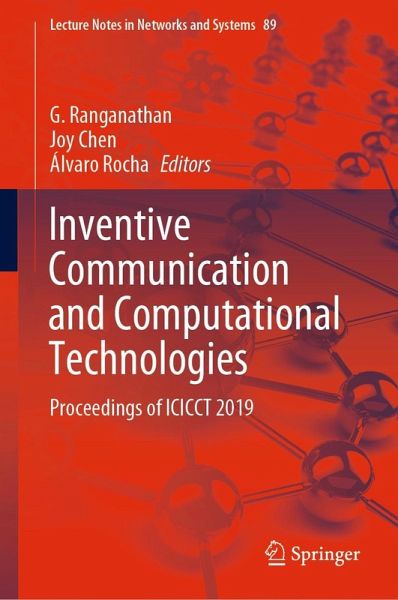
Inventive Communication and Computational Technologies (eBook, PDF)
Proceedings of ICICCT 2019
Redaktion: Ranganathan, G.; Rocha, Álvaro; Chen, Joy
Versandkostenfrei!
Sofort per Download lieferbar
160,95 €
inkl. MwSt.

PAYBACK Punkte
80 °P sammeln!
This book gathers selected papers presented at the Inventive Communication and Computational Technologies conference (ICICCT 2019), held on 29-30 April 2019 at Gnanamani College of Technology, Tamil Nadu, India. The respective contributions highlight recent research efforts and advances in a new paradigm called ISMAC (IoT in Social, Mobile, Analytics and Cloud contexts). Topics covered include the Internet of Things, Social Networks, Mobile Communications, Big Data Analytics, Bio-inspired Computing and Cloud Computing. The book is chiefly intended for academics and practitioners working to res...
This book gathers selected papers presented at the Inventive Communication and Computational Technologies conference (ICICCT 2019), held on 29-30 April 2019 at Gnanamani College of Technology, Tamil Nadu, India. The respective contributions highlight recent research efforts and advances in a new paradigm called ISMAC (IoT in Social, Mobile, Analytics and Cloud contexts). Topics covered include the Internet of Things, Social Networks, Mobile Communications, Big Data Analytics, Bio-inspired Computing and Cloud Computing. The book is chiefly intended for academics and practitioners working to resolve practical issues in this area.
Dieser Download kann aus rechtlichen Gründen nur mit Rechnungsadresse in A, B, BG, CY, CZ, D, DK, EW, E, FIN, F, GR, HR, H, IRL, I, LT, L, LR, M, NL, PL, P, R, S, SLO, SK ausgeliefert werden.



